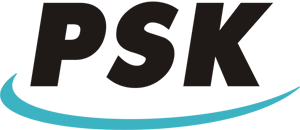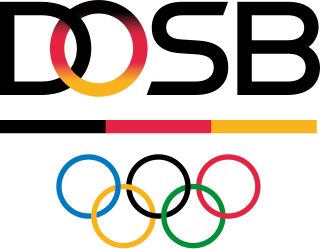The German Rugby Federation is the governing body for rugby union in Germany. It organizes the German national team and the three league divisions: the Rugby-Bundesliga, the 2nd Rugby-Bundesliga and the Rugby-Regionalliga. It was founded on 4 November 1900 in Kassel, and is the oldest national rugby union in continental Europe. After the Second World War, the DRV was restored on 14 May 1950.

The Deutsche Pfadfinderschaft Sankt Georg is the largest of Germany's many Scouting organizations. The Catholic association has about 95,000 members of both genders. Via the Ring deutscher Pfadfinder*innenverbände it is a member of the World Organization of the Scout Movement.

Post Südstadt Karlsruhe e.V. – Verein für Sport, Freizeit, Gesundheit und Integration is a German sports club from the city of Karlsruhe, Baden-Württemberg that was formed in 2001 through the merger of Karlsruhe VfB Südstadt and Postsportverein Karlsruhe. The footballers of VfB, playing as Karlsruher FC Südstadt sometime early in the club's history, are notable as founding members of the German Football Association in Leipzig in 1900.
The Deutscher Verband für Freikörperkultur represents the interests of organized supporters of the Freikörperkultur in Germany. The DFK is a member of the German Olympic Sports Confederation (DOSB) as an association with special tasks for popular sports in nude recreation. In addition, the DFK represents its members at the international level in the International Naturist Federation (INF), which also sees itself as representing the interests of non-organized naturists.

The German Olympic Sports Confederation was founded on 20 May 2006 by a merger of the Deutscher Sportbund (DSB), and the Nationales Olympisches Komitee für Deutschland (NOK) which dates back to 1895, the year it was founded and recognized as NOC by the IOC.
The German Sports Badge is a decoration of the German Olympic Sports Federation DOSB. The German Sports Badge test is carried out primarily in Germany, and in other countries abroad.

The National Socialist League of the Reich for Physical Exercise was the umbrella organization for sports and physical education in Nazi Germany. The NSRL was known as the German League of the Reich for Physical Exercise until 1938. The organization was expanded to Austria after that country's annexation by Nazi Germany.

VfL Herzlake is a German association football club from the village of Herzlake, Lower Saxony. In addition to a football department, the club has sections for handball, gymnastics, and volleyball.

Westwacht Aachen is a German football club from the city of Aachen, North Rhine-Westphalia. The footballers played as a fourth division side in the late 1970s and currently compete in the sixth tier Landesliga. They are part of a sports club with over 800 members that also has departments for swimming, fitness, and frisbee.

The Arbeiter-Turn- und Sportbund was a national German sports organization active between 1893-1933. The organization actively promoted leftist political views built around class struggle and nationalism.

The German Shooting Sport and Archery Federation is the largest umbrella organization for sport shooters in Germany. It was founded in 1861 in Gotha and re-founded in 1951 in Frankfurt / Main. DSB was Germany's fourth-largest sports association in 2008, with 1,095,071 male and 357,400 female shooters.

SV Stralau was a German association football club from the district of Stralau in the city of Berlin.
BV Kassel was a German association football club from the city of Kassel, Hesse. The club was established in 1906 as Ballspielverein Kassel and played as part of the ATSB, a leftist national sports organization which organized a football competition and championship separate from that of the DFB. The club advanced to the ATSB final in 1921-21 through a 3:0 quarterfinal victory over Germania Wilhelmshaven and a 3:1 win over ATSV Rheinau. They were beaten in the final by VfL Leipzig-Südost (4:1).

Deutscher Gehörlosen Sportverband (DGS) is the German umbrella organization for sport of deaf and people with hearing impairments. The DGS is a registered organization seated in Essen.
The DJK Don Bosco Bamberg is a German association football club from the town of Bamberg, Bavaria. DJK stands for Deutsche Jugendkraft, a sports organisation associated with the Catholic Church while John Bosco, popularly known as Don Bosco, was an Italian Roman Catholic priest of the Latin Church, educator and writer of the 19th century.

DJK Abenberg is a German sports club from the town of Abenberg, Bavaria. It has departments for football, gymnastics, handball, bowling, athletics, skiing, tennis, walking, and hiking.
The Bund der Deutschen Katholischen Jugend (BDKJ) is the umbrella of Catholic youth organizations in Germany.

The Deutscher Turn- und Sportbund was a mass organization of the German Democratic Republic from 1957 until shortly after German reunification. Membership in the organization included nearly four million people, which accounted for almost 20% of the population of the GDR.
The German Gymnastics Federation is the umbrella organization of the German gymnastics associations and clubs.











